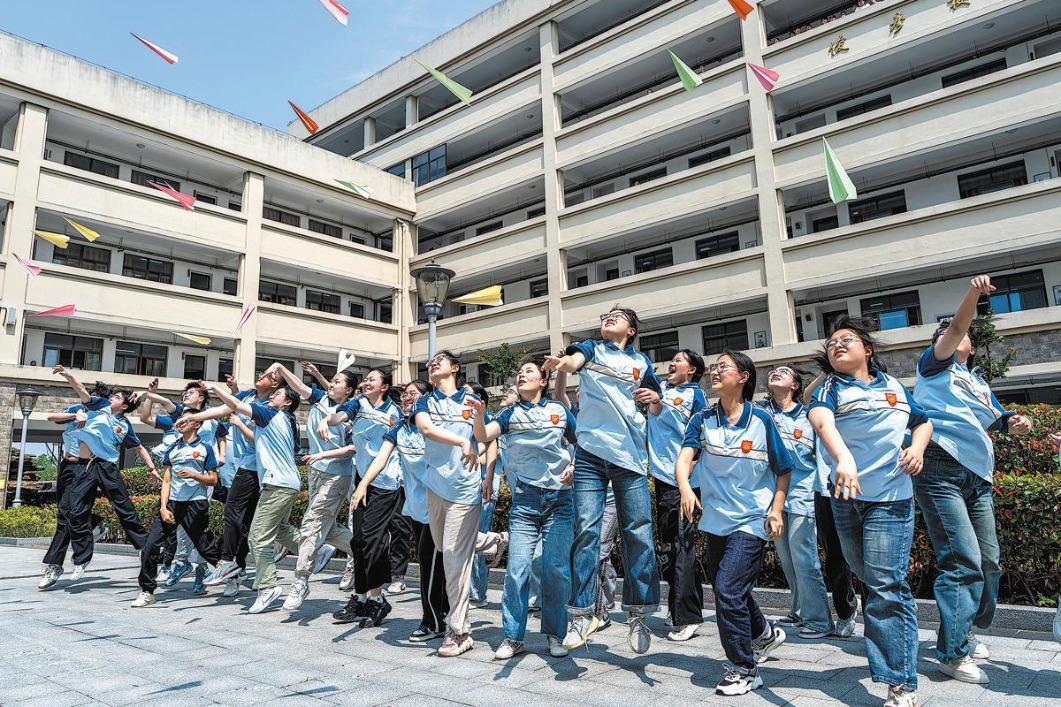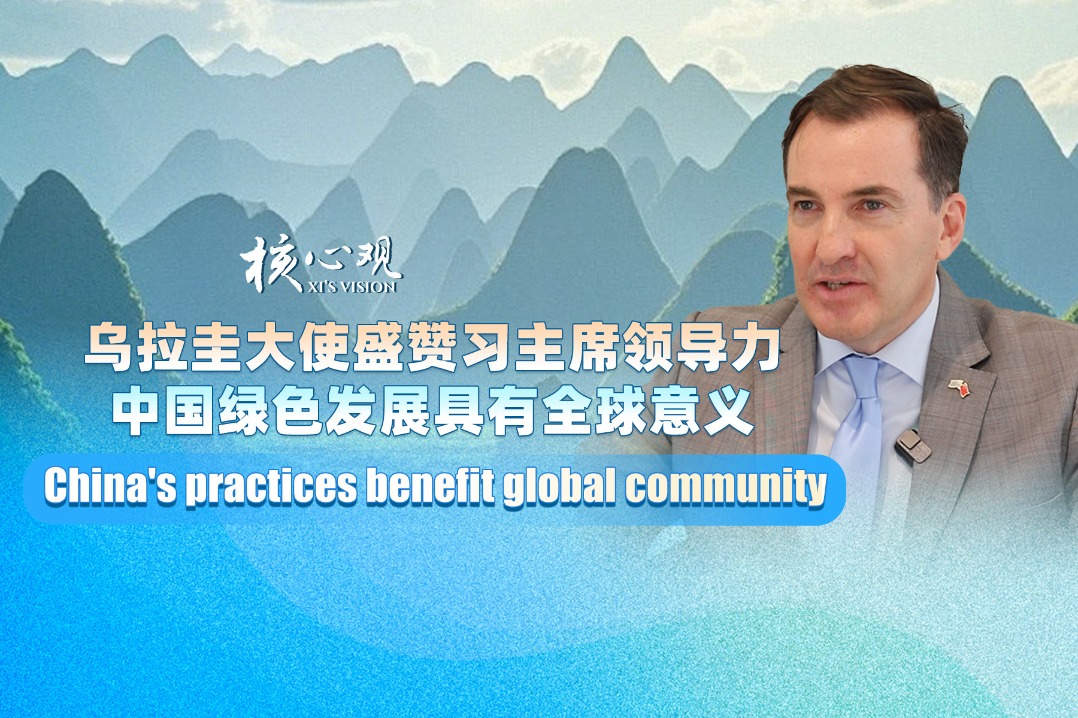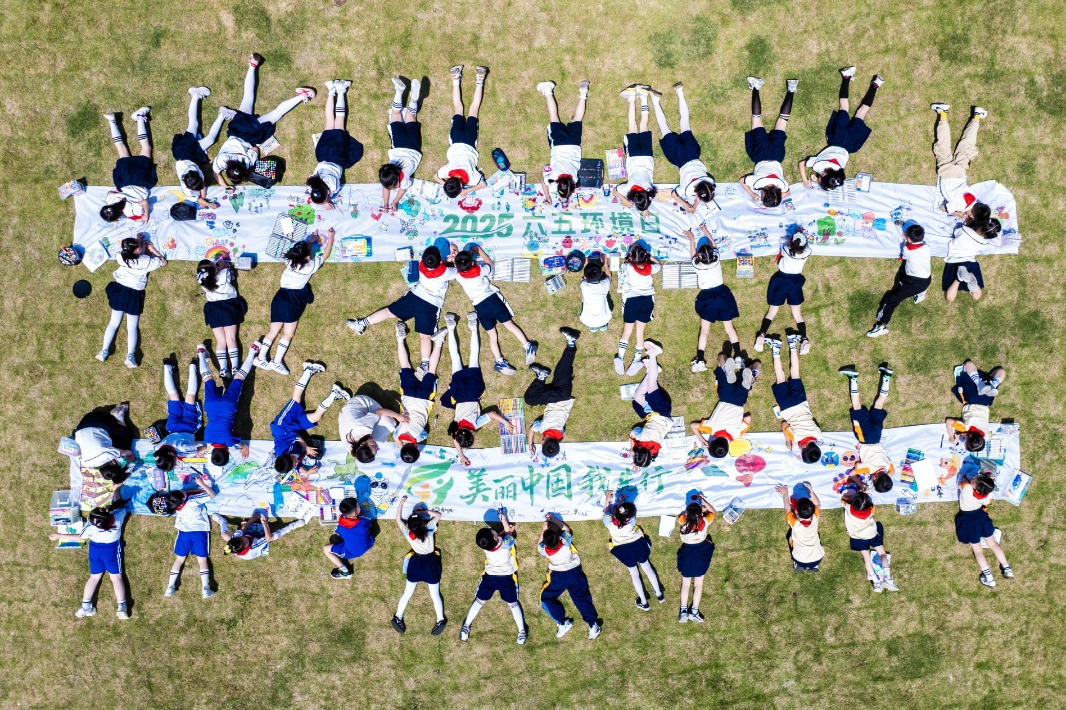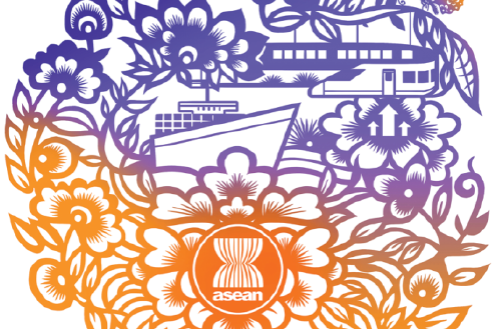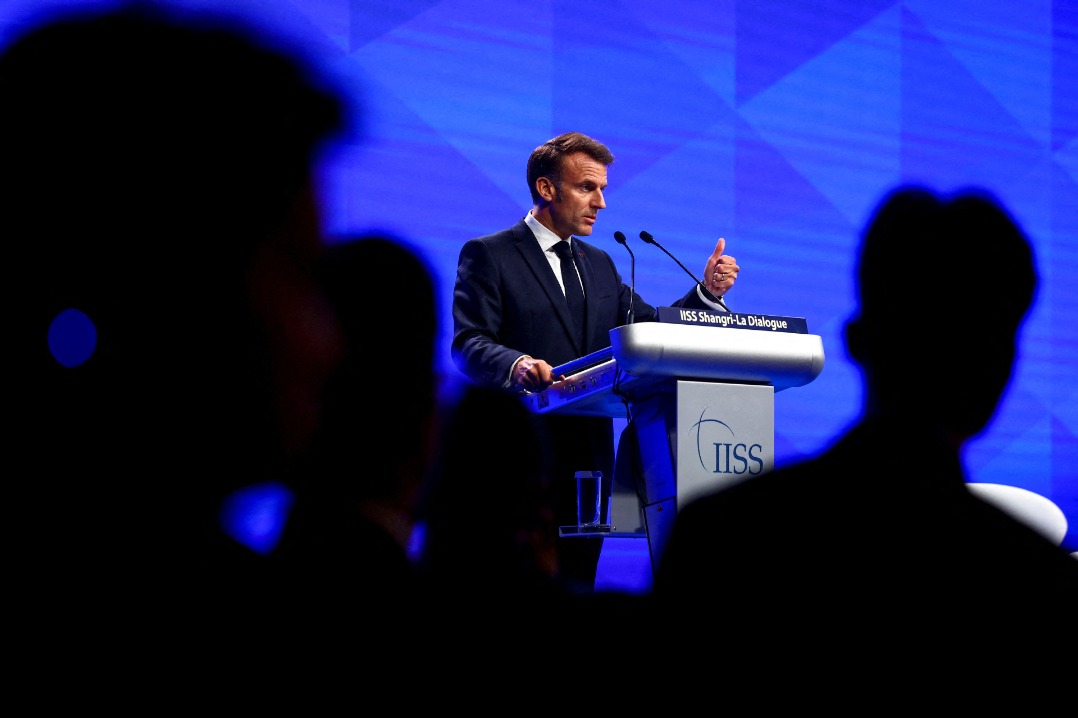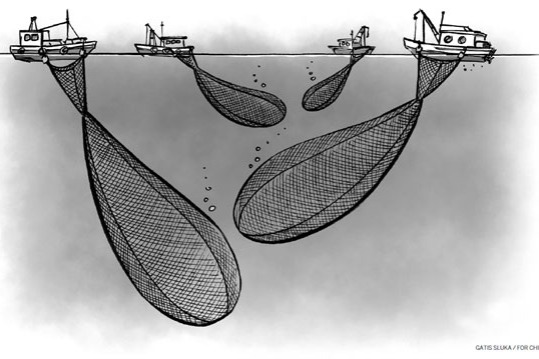Shared inclusive goals needed
Only when developing countries play a bigger role in the World Bank's operations will it fulfill its mission of providing global development public goods


In recent years, the United States has systematically retreated from global development, and its policies have shifted further toward unilateralism. It has closed the US Agency for International Development, withdrawn from multiple international organizations, and pushed for policy overhaul within the International Monetary Fund and the World Bank.
In a recent speech, US Treasury Secretary Scott Bessent accused the IMF and the World Bank of straying away from their core missions. He criticized the World Bank for failing to adequately address the basic development needs of developing countries, such as access to energy; called for stricter lending criteria for countries such as China; and urged the World Bank to reform its procurement policies based on "best value".
Although recent remarks by US officials ruled out an immediate US withdrawal from the World Bank, temporarily stabilizing market expectations, Washington's deep interventions in the institution's governance and operations as the largest shareholder have raised serious concerns.
First, as a core development institution within the United Nations system, the World Bank strives to balance developing countries' basic needs with the long-term sustainability goals while maintaining professional independence. US interference, framed as realignment of development priorities, in fact undermines the World Bank's work and operations under the framework of the UN's 2030 Agenda for Sustainable Development.
Second, any decision to impose restrictive policies on countries such as China should be based on aid eligibility criteria. The global development financing system is evolving toward diversified financing participants including public-private partnerships, innovative tools such as mixed financing guarantee, while setting integrated goals to cover multidimensional development and address challenges from climate change and technology shocks.
In this context, international financial institutions must establish evidence-based frameworks to assess how and to what extent to engage and cooperate with middle-income countries, rather than resorting to blanket exclusions.
Third, the US call to reform the procurement policies directly interferes with the World Bank's internal policies and procedures. These proposals contain significant geopolitical considerations to target the growing participation of developing countries such as China in international development, which is likely to cause systemic barriers and undermine their positive efforts in participating in global development.
Under these mounting pressures, the World Bank is confronted with difficulties, and the bank's situation also reflects the difficulties of international development amid the rapidly shifting global political and economic landscape.
As the World Bank's largest shareholder, the US holds decisive influence over the organization's strategic direction. However, US foreign policy objectives are increasingly being shaped by domestic challenges, including its deepening social divisions, rising inequality, and racial tensions. As a result, US engagement with global development and responsiveness to the needs of developing countries is on the decline. This shift has eroded the constructive role the US once played and has instead become a destabilizing dynamic within international institutions.
Amid intensifying global financing competition, increasingly complex development challenges and growing demands from emerging economies, if the World Bank remains overly dependent on US' political directives, it risks damage to its reputation while being marginalized in the global development governance system. Without an effective balance between professional integrity and political influence, the World Bank may lose its neutrality and credibility, and risk being replaced by regional or specialized development financing mechanisms.
The global development governance system is at a critical juncture of transformation. To break this deadlock, it is imperative to recognize and understand the profound shifts in the global balance of power.
The World Bank was established under the US-led Bretton Woods system after World War II when most developing countries were economically disadvantaged. Leveraging its economic, technological and institutional leadership, the US played a dominant role in the World Bank's creation and operations. The World Bank, in turn, gained much of its influence from its primary shareholder's political and economic support.
But that development landscape has seen fundamental changes today.
Eighty years into its operations, the World Bank is now deeply grounded in its practical engagement with developing countries. In an era of dynamic globalization and the rapid rise of the Global South, the demands and active participation of these developing nations have become a key source of vitality for the institution. Their strong aspirations for inclusive growth, sustainable development, equitable cooperation mechanisms, and structural reform in global governance have laid a new foundation for global development governance. Unlocking the collective momentum and systemic demands of the developing countries is key to dismantling outdated institutional design and ushering in a new phase characterized by mutual benefits and interactions.
A stable and equitable global development framework not only benefits developing countries but also relieves pressures on developed nations. Economic growth in developing countries expands trade opportunities, reduces trade imbalances of the developed nations, and boosts global market vitality. From a sociopolitical perspective, more than 60 percent of international migration is driven by economic considerations, with much of the remainder linked to political factors such as war and conflict. Prosperity and stability in developing countries can help address the root causes of immigration pressures on developed nations and foster a win-win situation.
China has consistently served as a major stabilizing force in global development practice. As the world's largest developing country and an emerging donor country, China proposes constructive cooperation through integrated approaches that synergize trade, investment and development assistance to promote sustainable national development, and draw on its accumulated experience in infrastructure development, green technology applications and industrial park planning. Its promotion of South-South cooperation has created strong opportunities for mutually beneficial outcomes aligned with the UN Sustainable Development Goals, making it a key driver for international development.
The World Bank occupies a central position in global development governance. Its role should extend beyond allocating funds and sharing knowledge to providing structural guidance for shaping the global development order. Two core principles should underpin its reform.
First, institutional design and standard-setting must remain neutral, and be free from excessive political influence on its operation rules. International development cooperation should be driven by shared goals and outcomes, prioritize host countries' self-identified development needs, harness all partners' field experience, and safeguard against unilateral interest capture.
Second, the institutional participation of developing countries must be significantly strengthened. Leadership in international development practices should not remain in the hands of a few developed nations. Developing countries deserve a strong voice in setting standards and shaping the development agenda.
Only by building a more inclusive, balanced, and responsive international development cooperation system can the World Bank fulfill its mission to provide global development public goods.

The author is a research fellow at the National Institute for Global Strategy at the Chinese Academy of Social Sciences and head of the Research Center for Development under the Institute of World Economics and Politics at the CASS. The author contributed this article to China Watch, a think tank powered by China Daily. The views do not necessarily reflect those of China Daily.
Contact the editor at editor@chinawatch.cn.

















